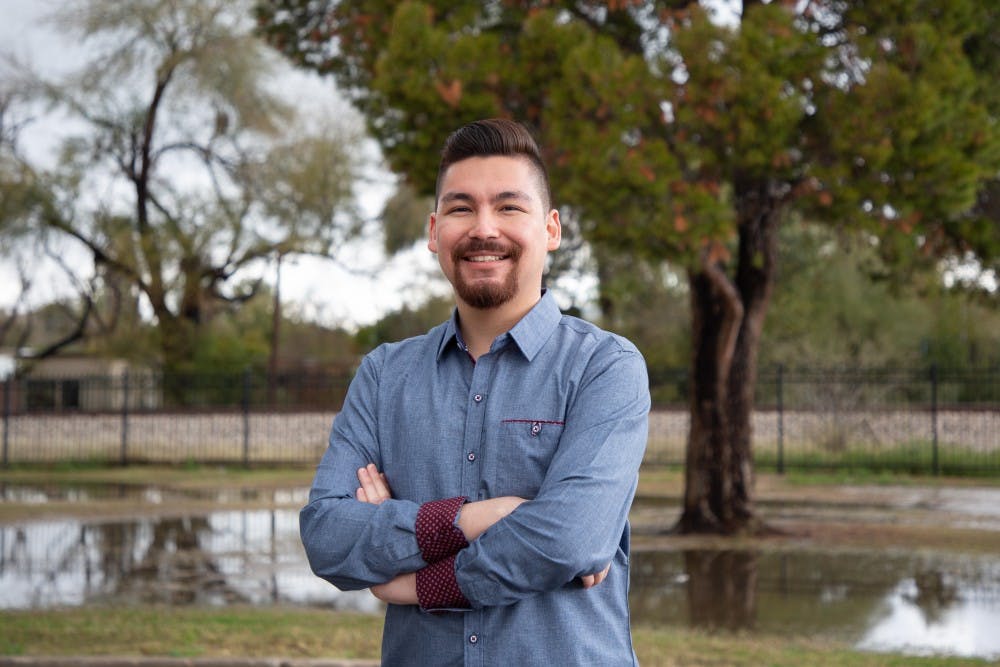Auditioning for an orchestra can be daunting for anyone, but this is especially true for musicians of color, who often have to brave the jitters and the lofty, intimidating concert hall only to find themselves standing alone in a sea of white faces.
That was the case for Chaz Salazar, a Mexican-American ASU alumnus and flautist who's currently auditioning at multiple places for a seat in the orchestra.
Salazar, who obtained a bachelor of music from ASU in 2015 and master's of music in 2017, is the recipient of a grant from The Sphinx Organization’s National Alliance for Audition Support, an initiative to help support musicians of color through the audition process.
The Sphinx Organization, founded by Aaron Dworkin, launched the National Alliance for Audition Support on Jan. 1, 2018 as a collaboration between The Sphinx Organization, the New World Symphony and the League of American Orchestras.
Johnnia Stigall, project manager for the initiative, said that currently only 5 percent of musicians in American symphonies are made up of Black and Latinx people.
“The ultimate goal is to move the needle and have greater representation in American symphonies,” Stigall said.
Salazar said The Sphinx Organization’s lets musicians of color who are currently going through the audition process the opportunity to play for a panel of over 20 orchestras from across the nation.
He said he feels thankful for the opportunities that have opened up for him since he became a Sphinx Orchestral Partners Auditions fellow through the initiative in October 2018.
“After I had my audition, we had a talk-back session with a lot of the representatives, and part of SOPA is that you also get to record your audition so you can hear what you sound like on stage,” Salazar said. “It’s very intricate. What you think is coming out of your instrument could be very different from what is coming out into the hall.”
He said he also received written comments from the panel of orchestra professionals.
“I think I received 36 pages of comments, and this is important because this puts the people auditioning on the map,” Salazar said. “Being two years out of school, it's difficult to get invited to an audition because the orchestras are looking for people with experience.”
Composer and violin performer Daniel Roumain, a professor at ASU’s School of Music and board member for The Sphinx Organization, is a Haitian-American musician.
Roumain said he is glad to be part of a conversation that Sphinx is starting about the lack of diversity in orchestras.
“You have to imagine what that must feel like to feel separate every day at ASU,” he said. “I love ASU, It’s a family, but like any family, it’s important that we address these problems.”
Roumain said he believes the National Alliance for Audition Support is a wonderful initiative and that Salazar's part in it is vital to the movement of getting more people of color into American orchestras.
“I think there’s a real crisis in terms of classical music audiences and The Sphinx Organization is addressing this,” Roumain said. “Chaz is deepening the solution and collaboration.”
Salazar said his short time as a fellow at Sphinx has improved various areas of his life, including his role as a flute instructor for the nonprofit organization Harmony Project Phoenix.
“I feel that through my involvement with Sphinx, it’s my duty to continue that cycle of diversity in the arts,” Salazar said. “Not only do those of us in the audition circuit lack the economic component, but I feel that there’s not a lot of musicians of color who have made it that far. We have to put instruments into the children's hands who lack that opportunity.”
Salazar said he started playing the flute when he was 10 years old, a luxury made available to him through a similar initiative called Rosie’s House.
“My family could not afford private lessons,” he said. “That’s why I do my work with the nonprofit organization. The impact that we have on these kids is vital, not just to them as musicians, but as young men and women.”
Reach the reporter at ivcrespo@asu.edu or follow @ziacrespo on Twitter.
Like The State Press on Facebook and follow @statepress on Twitter.




